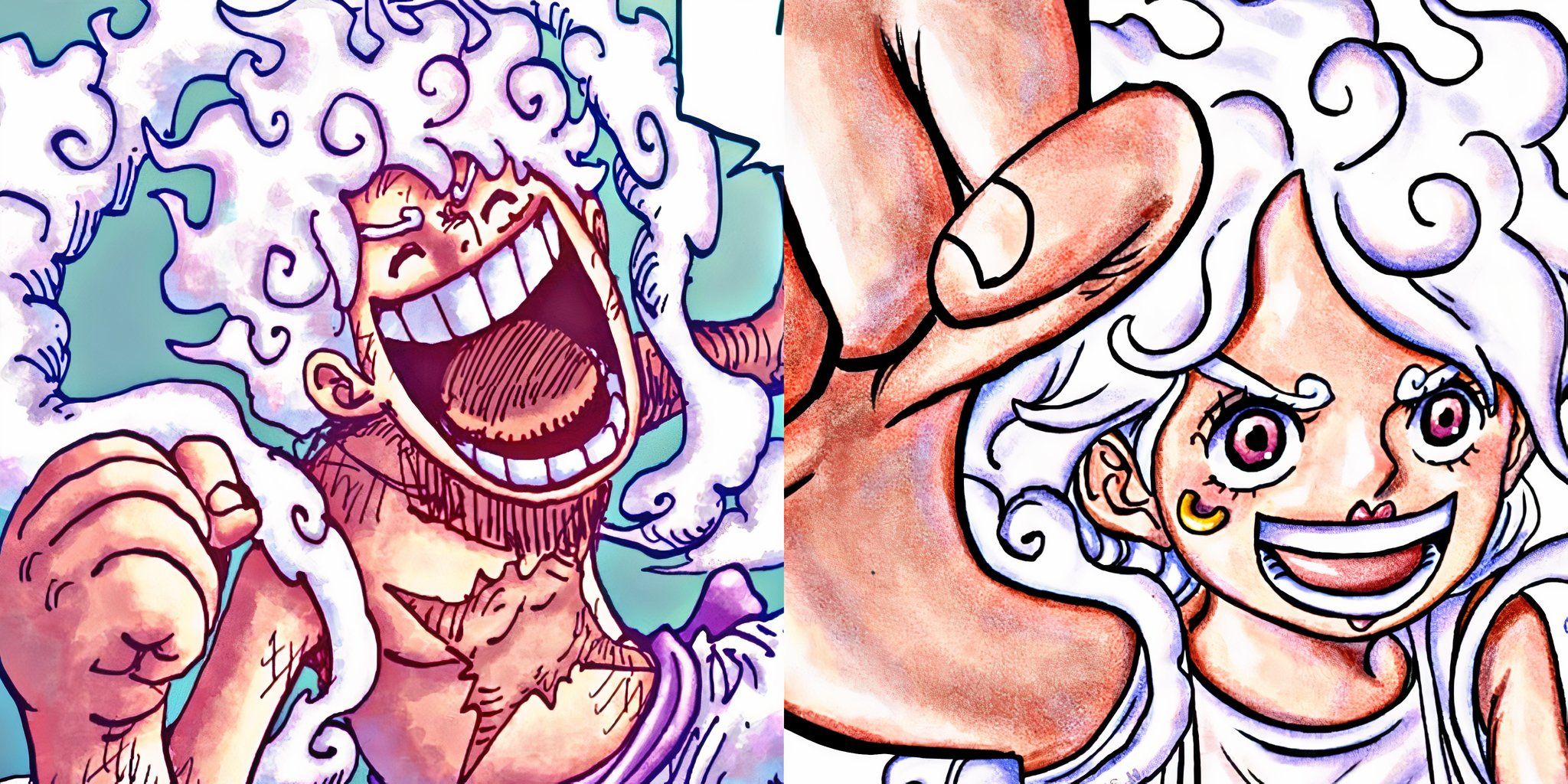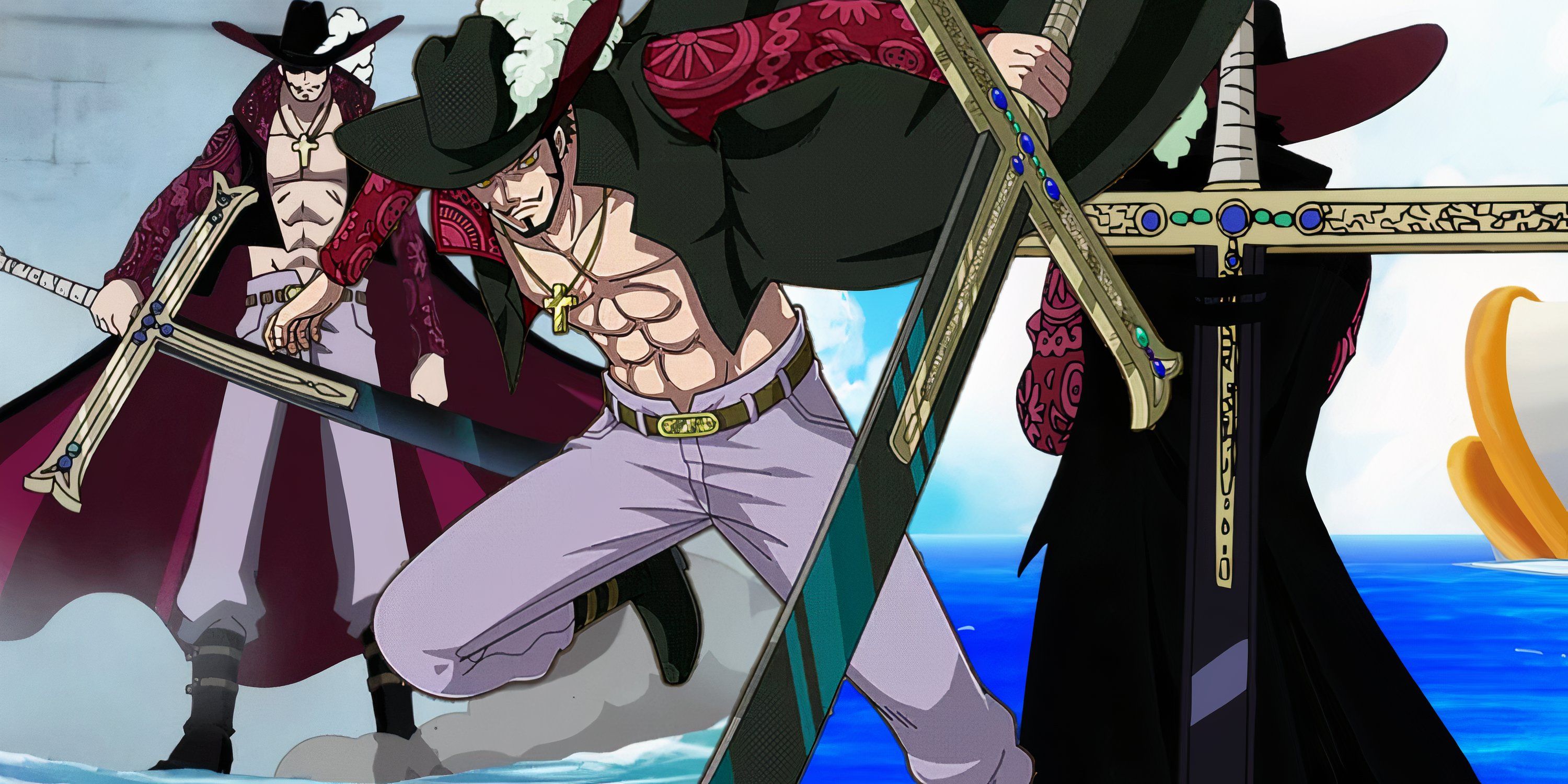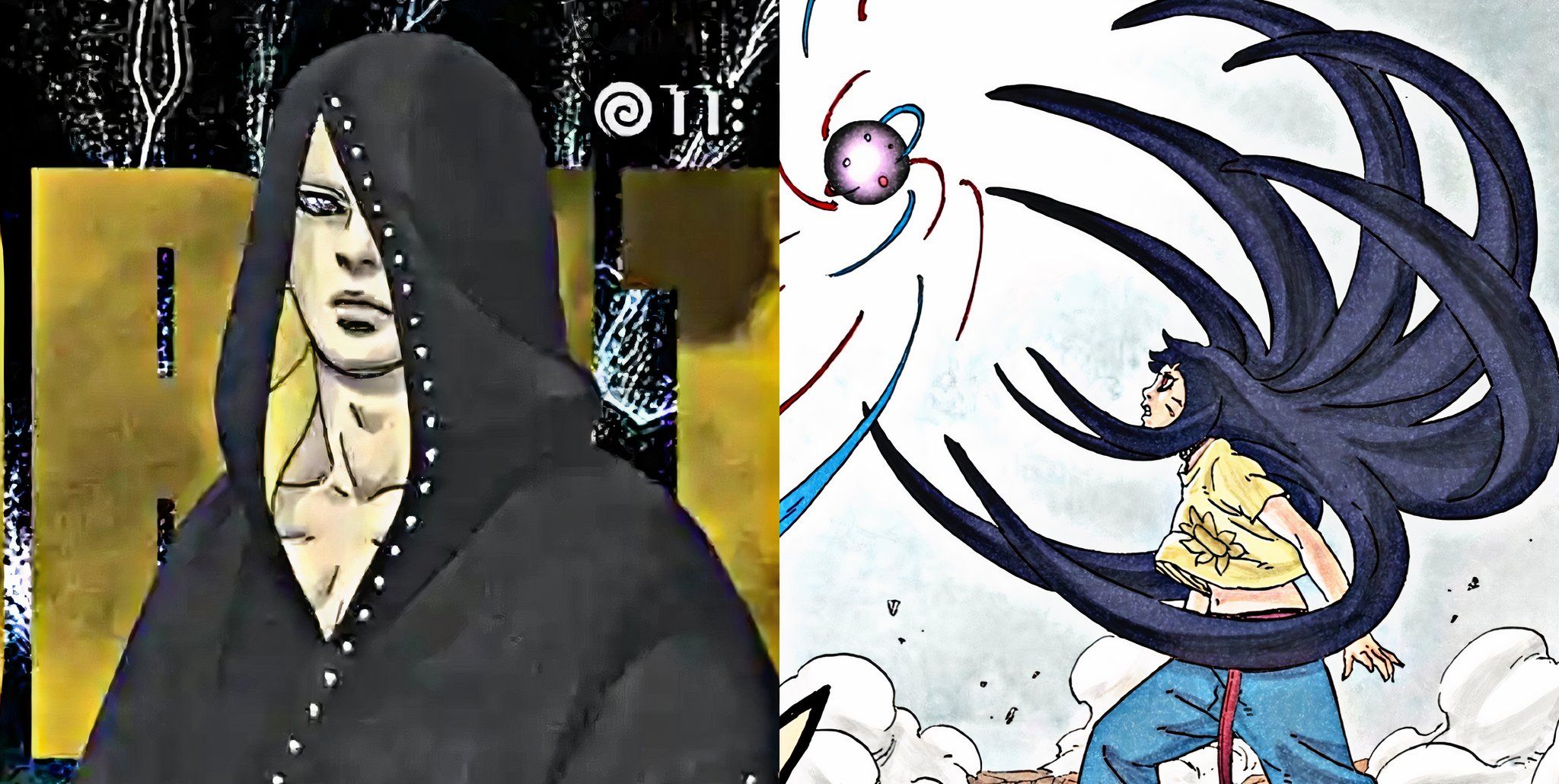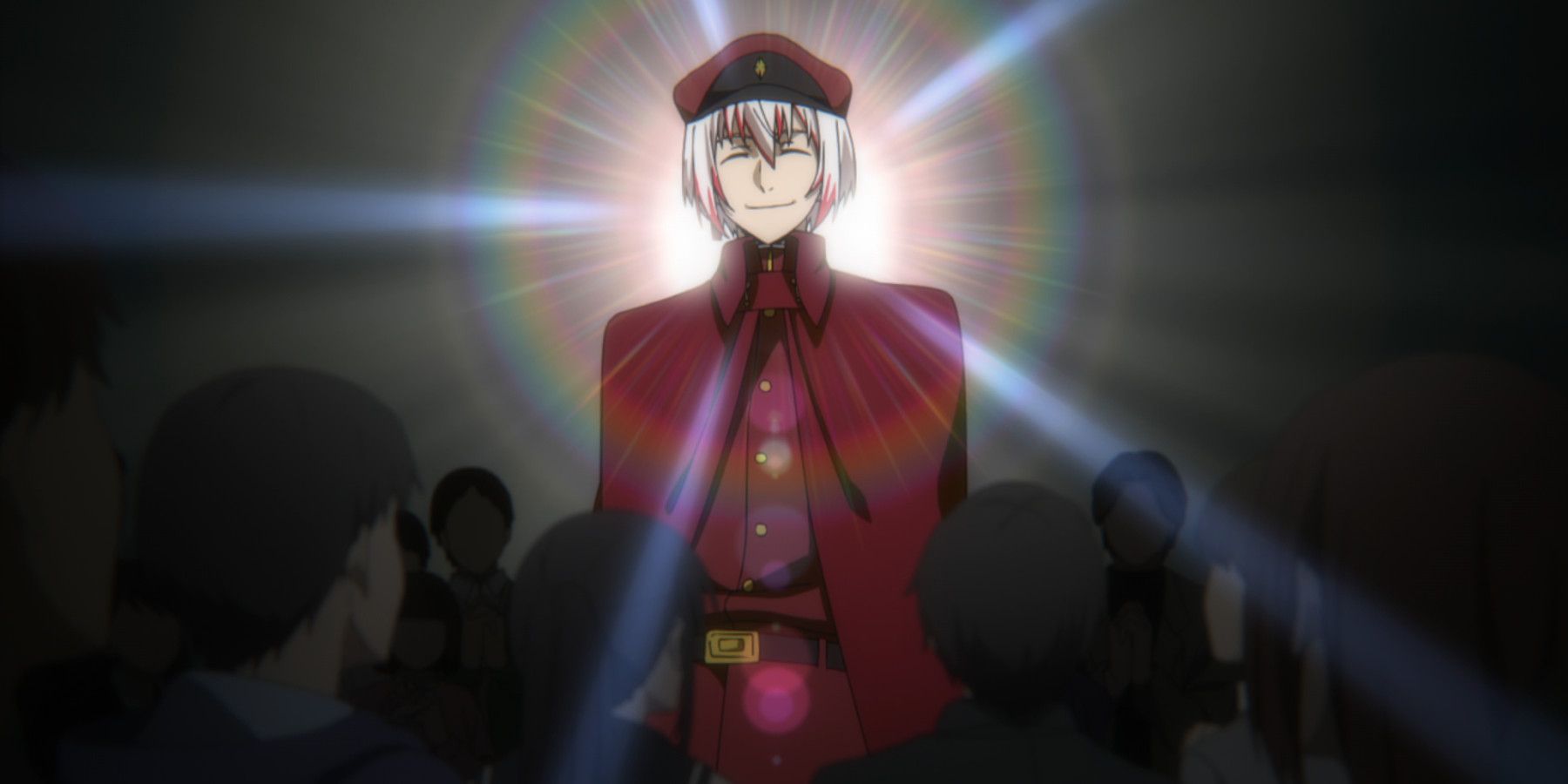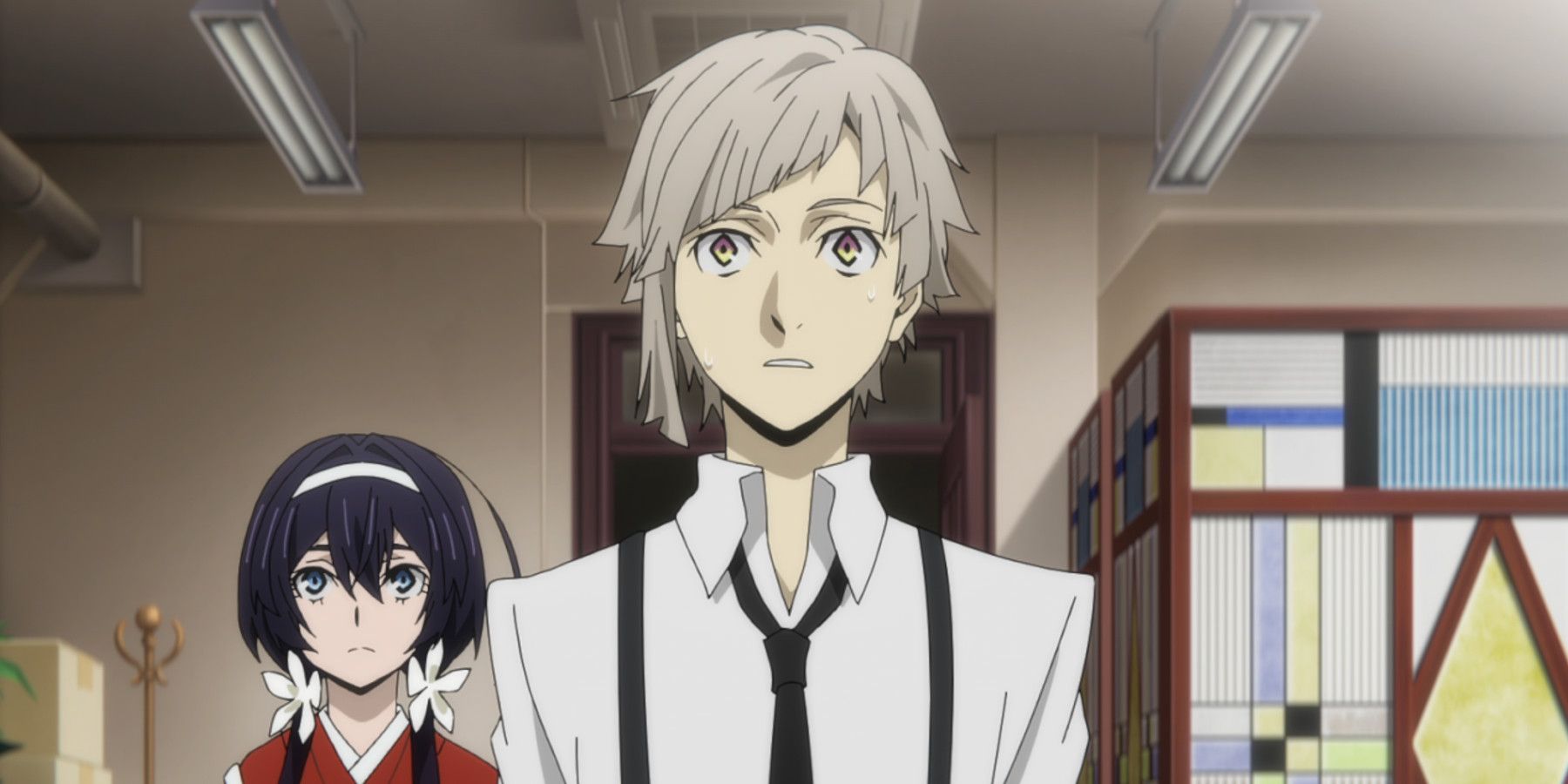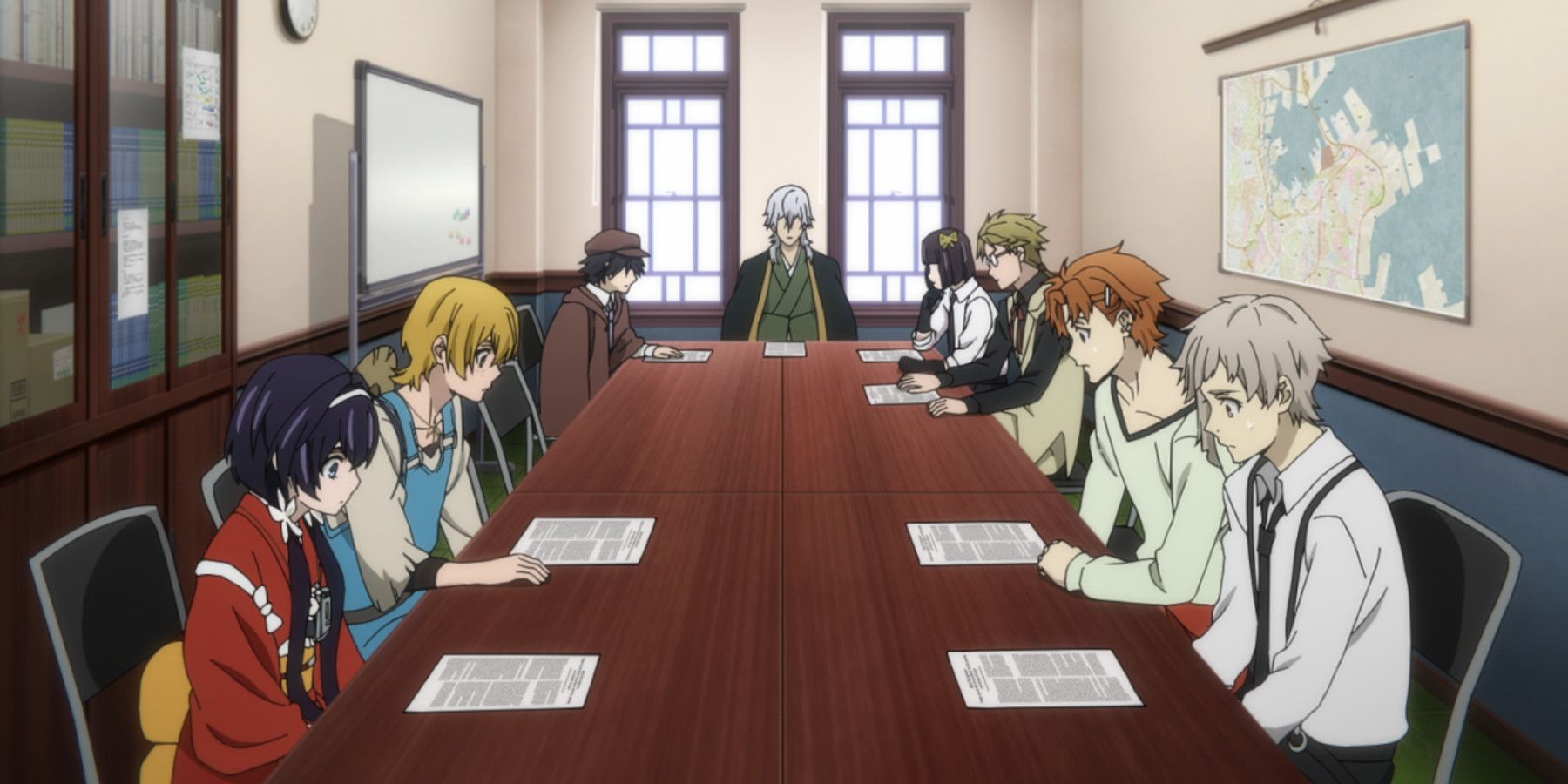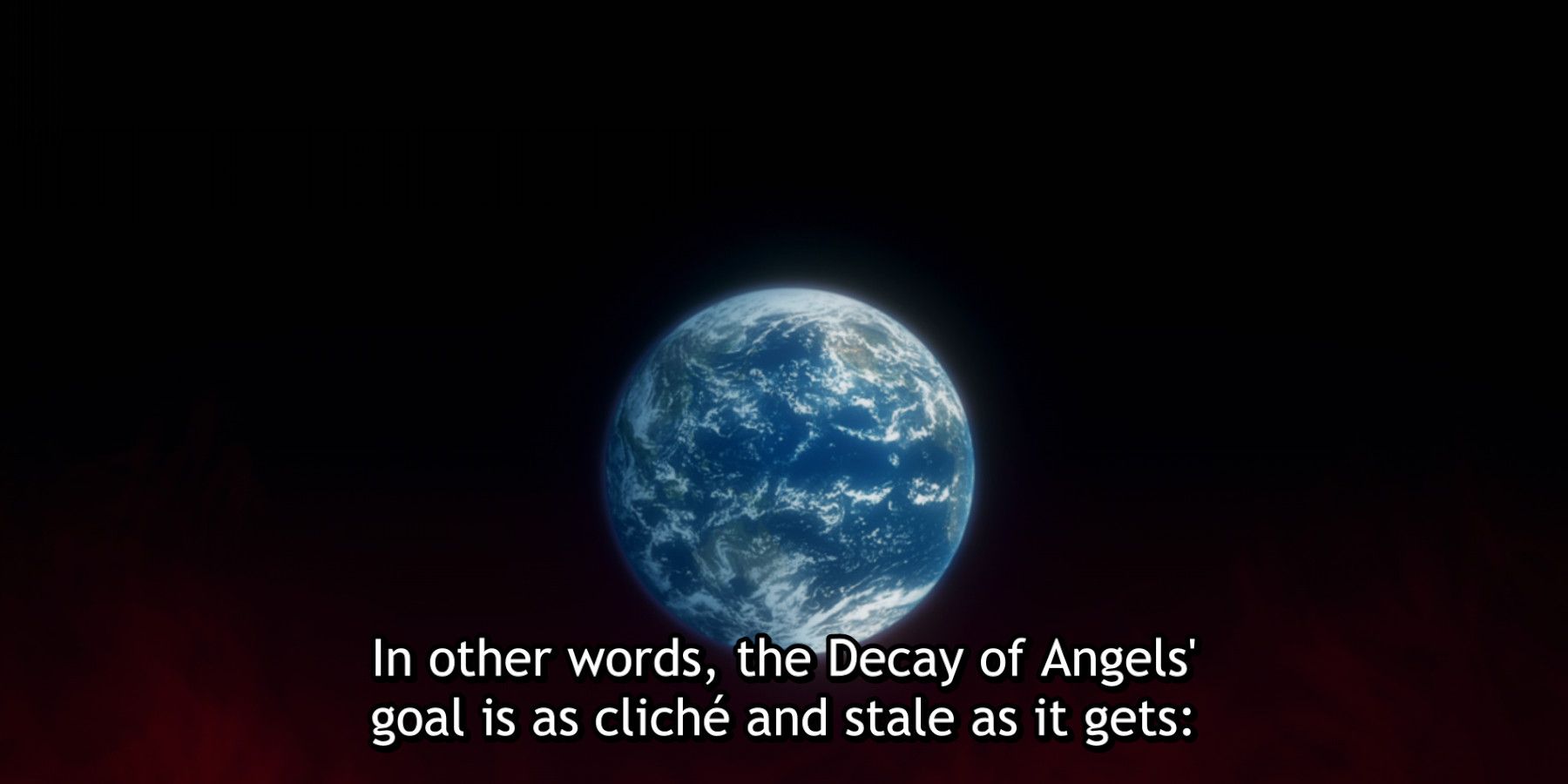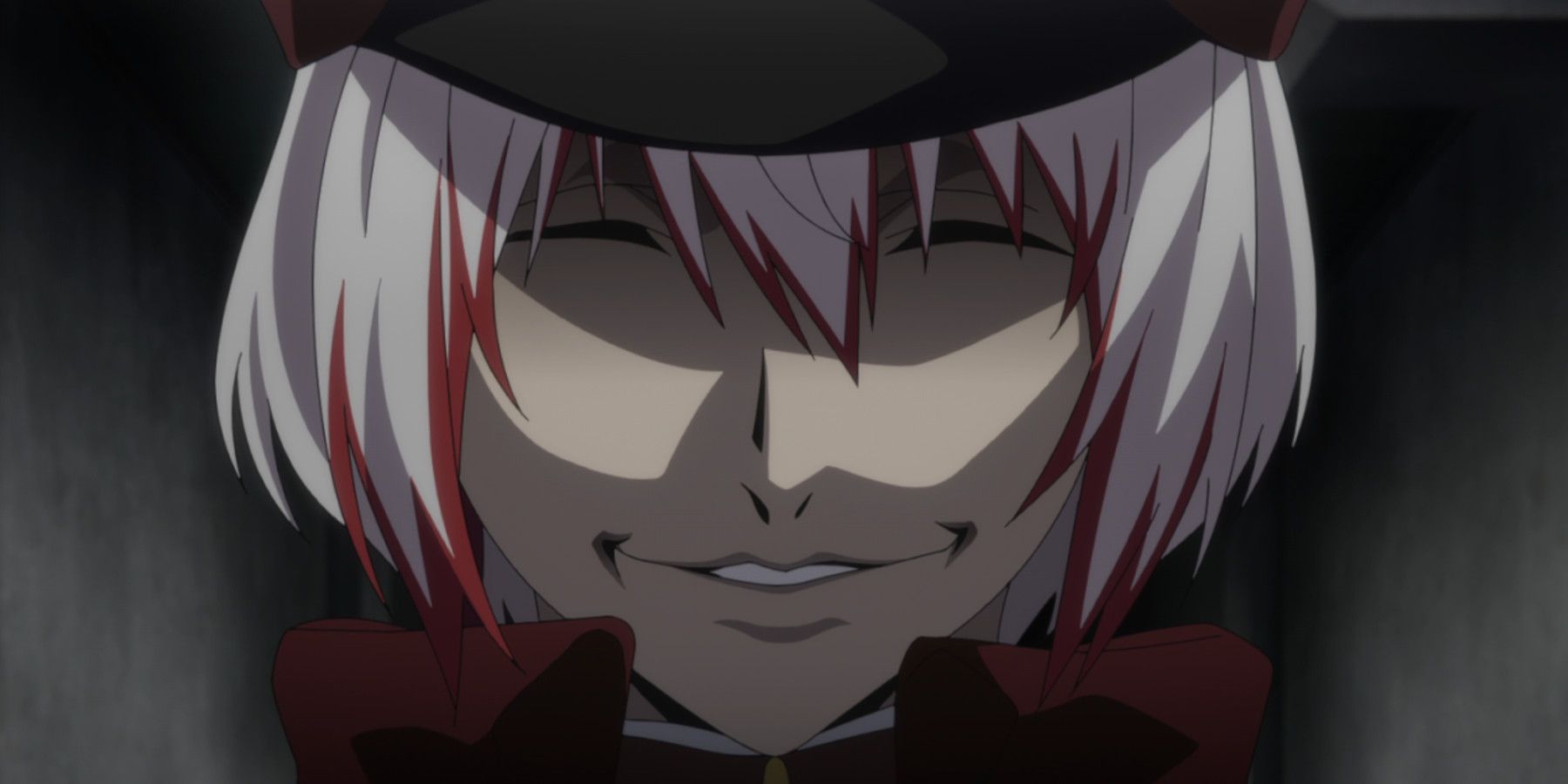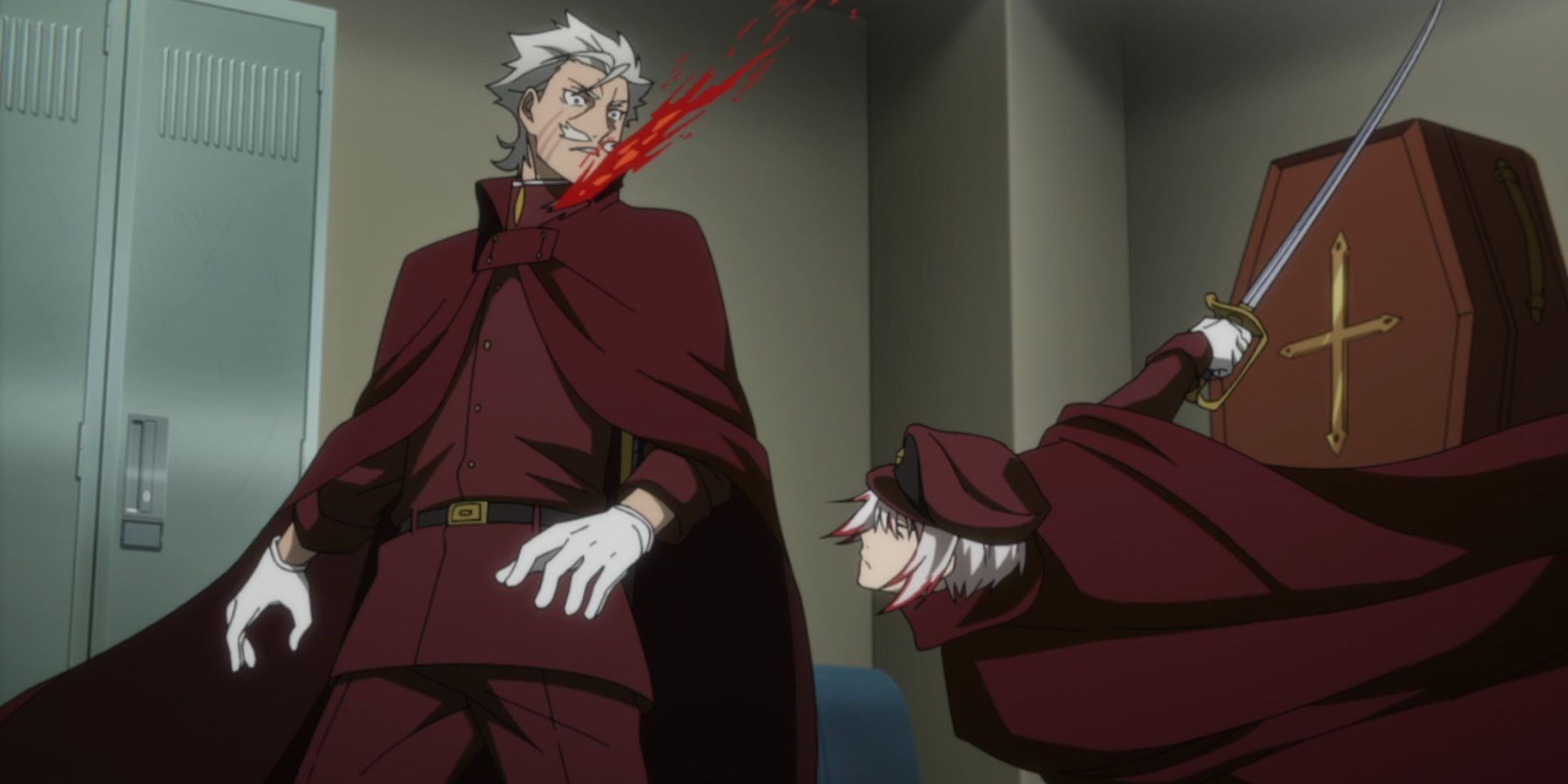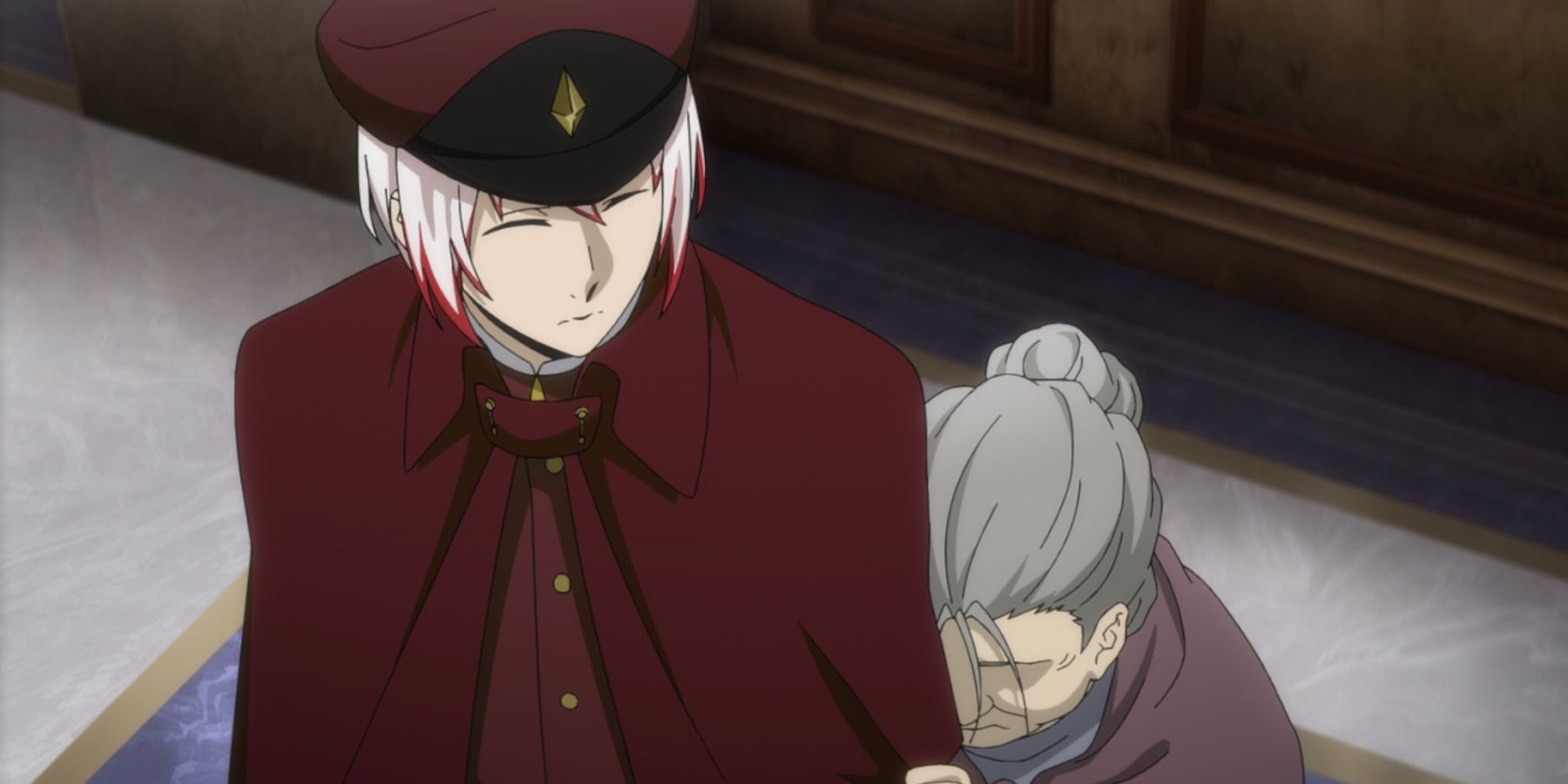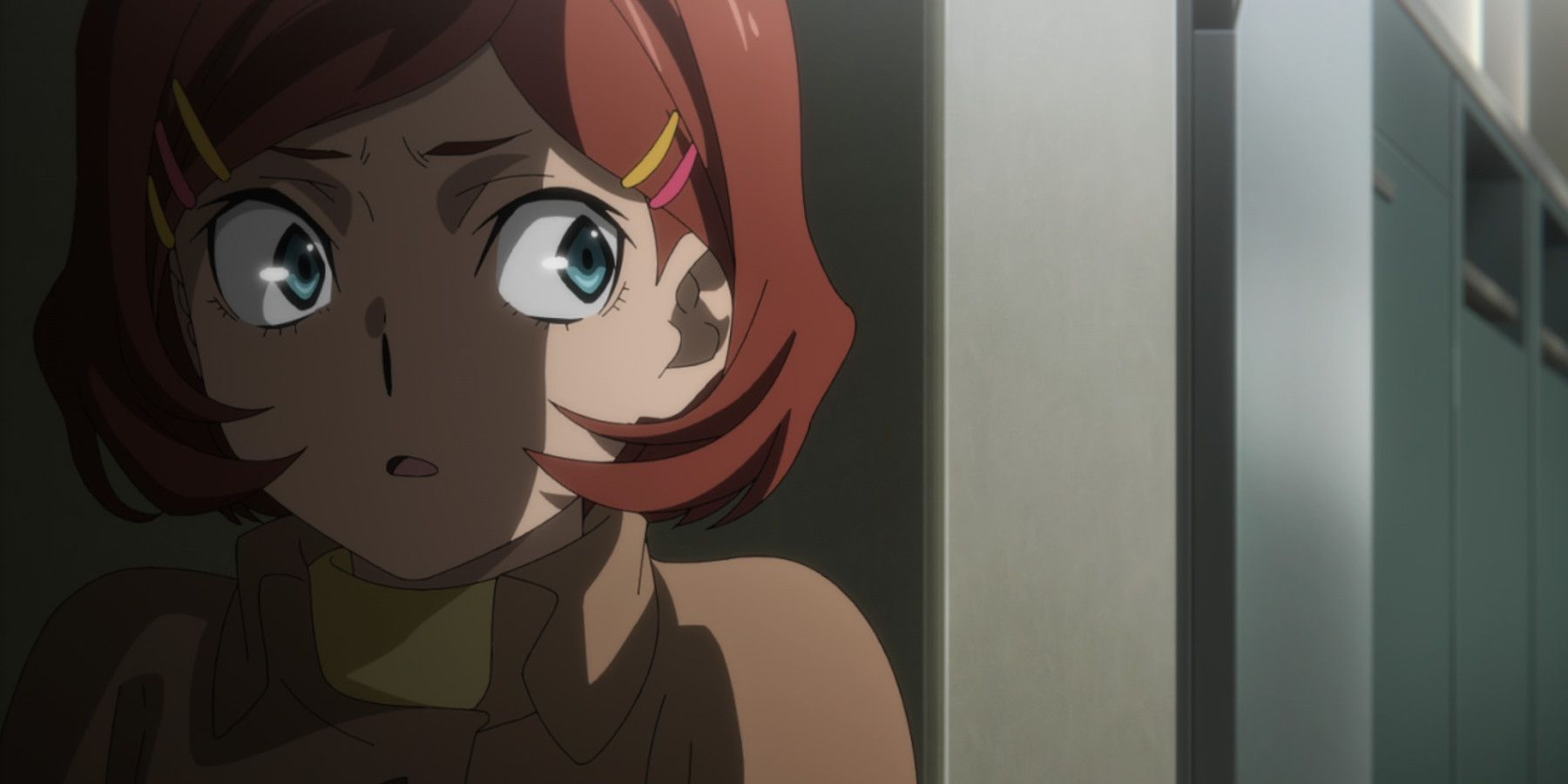Highlights
- The recent episodes of Bungo Stray Dogs have been fast-paced and filled with new concepts and lore, which may feel overwhelming and rushed to some fans.
- Despite the introduction of numerous plot devices and concepts, the show manages to maintain a fresh and engaging storyline that keeps viewers hooked.
- The development of Jouno Saigiku's character reveals a complex and morally ambiguous nature, making him an intriguing and unexpected turncoat in the series.
Warning: The following contains MAJOR spoilers for Bungo Stray Dogs, Episode 55, "At the Port in the Sky (Part 1)", now streaming on Crunchyroll.
Jouno Saigiku has always been a shady character since their debut in Season 4, and numerous instances of torture, torment, and overall creepiness since then have done little to dissuade that impression. However, this is Bungo Stray Dogs, a show where even the most despicable sorts are capable of doing good once in a while, and at a time when characters are dropping like flies, that kind of reminder is invaluable.
Last week, Fukuchi unleashed Bram Stoker's ability, spreading throughout the world and turning the world's military forces into thralls under Bram's command, forcing the UN's hand. Discovering his deception, Tachihara confronted Fukuchi but was unable to overcome the time-bending power of the Amenogozen, and was defeated before becoming a vampire himself.
The Calm Before The Storm
Needless to say, the last four episodes have been a lot to take in, and while the story isn't going to be slowing down anytime soon, it was a relief to see a familiar setting. Edgar Allan Poe's ability is used to recreate the Armed Detective Agency headquarters, which explains those shots from the trailers where the cast was mysteriously back in the office despite being hunted.
Lucy and Poe's powers have both truly carried the home team this season. If it weren't for the two allies with abilities that create subspaces, they'd all have likely been killed off ages ago. By using the "office" as a starting point, there's a sense of nostalgia for the simpler times, as well as the added benefit of a fresh start before their "final mission" to reclaim the agency's reputation.
Since the start of the Decay of Angels saga, Bungo's worldbuilding has expanded far beyond Japan's borders, though the pace at which this lore has been presented isn't exactly ideal. Name drops like "Standard Island" or the "Master of Gifted Warfare" (assumedly Agatha Christie) can be exciting, especially for novel readers, but some of the concepts feel over-ambitious.
It wasn't a lie in last week's review when we equated Bram's debut to a Pandora's Box. Fukuzawa refers to Bram as one of the "ten tragedies that once destroyed humanity," but little explanation is offered about what that entails. And now, the fate of the narrative hinges on yet another plot device, the "One Order," a tool that can control the minds of entire militaries, which itself is one of three "Great Calamities."
These ideas do sound awesome, it's just that it feels late to introduce so many of them in quick succession. Five seasons in, fans still aren't sure what started the "Great War," but ultimately, that isn't as important as the effect the war had on the world and its characters. It was lore that was slowly explored over several seasons. On the contrary, Bram and the One Order directly impact the current plot, so it behooves the storytellers to introduce these concepts organically.
On a positive note, Fukuchi's plan is definitely one of the more inventive strategies for world domination. The story is self-aware enough to have Ranpo call the villain's end goal "cliché and stale," but it's a testament to the writing that it hasn't felt cliché. This could be attributed to Bungo's innate otherness; the way it embraces a pastiche of dramatic storytelling intrinsic to its literary and film influences.
Jouno Saigiku: Becoming Not Quite As Terrible
Manga readers have been vocal about omissions from the source material - typically small scenes and details, but ones that can add up nonetheless. It's not unusual to wonder if the Hunting Dogs might be more compelling in the manga format, but credit to the voice actors and the directing, they have all made incredibly strong impressions.
Teruko is an angry gremlin, but beneath that frightening veneer is a woman who doesn't see herself as one who stands above the people, but rather as a servant of society and its peace. Tetchou seems cold and vicious, but only because the Agency has been labeled as terrorists. His obtuse tastes aside, he actually reveals himself to be incredibly honorable, namely when he makes a promise to the owner of Café Uzumaki. But then there's Jouno...
Jouno is incredibly intelligent and perceptive, but because of those qualities, he is a frightening interrogator who delights in the pain of others. It's what creates so much tension between him and Tetchou, but it's also a smaller part of what makes the Hunting Dogs as a whole so complex. They're only the "good guys" because the people they fight are "terrorists." Since the audience knows the Agency is innocent, the Hunting Dogs' evil qualities are more pronounced.
Discounting Fukuchi, who has already been outed as the main villain, Jouno comes across as the most morally reprehensible of the group, which makes him the ideal turncoat. So he extends an invitation for Jouno to join the Decay of Angels, and it blows up in his face, not because Jouno turned out to be a good person, but rather because he's a slightly less terrible one.
He delights in torturing others with the expressed understanding that they are criminals, and thus it is "justified," but contrary to Fukuchi's suspicions, he enjoys protecting people more. It doesn't make Jouno a certified good person nor does it have to, but it's poetic brilliance that Fukuchi effectively brought it on himself by making his prospective co-conspirator into a hero.
Funnily enough, this is the third week in a row that a character has found out who Fukuchi really is, confronted him, and lost. With that said, each time, the dynamic has shifted significantly. The relationship between the combatants is different, as is their familiarity with one another and the precautions taken - if any - to account for the Amenogozen. The action may be short, but it's oh-so-sweet and speaks to how much thought went into these fights.
Regardless of Fukuchi's 3-0 winning streak, there are enough cracks in his meticulous plan that a weak spot will inevitably present itself. It's just about finding it, no matter how many more failures need to occur before then. It will all hinge on how far ahead Ranpo has planned, and whether that plan accounts for time travel.
This episode was also significant in that it was the first this season to actually have enough time for an ending title sequence, which was gorgeous, as expected. It also saw the return of Aya Koda, the supporting character from the OVA, Episode 25, "Walking Alone." It will be interesting to see what role she plays in the coming chaos.
The remainder of Bungo Stray Dogs Season 5 is likely to be confined to the airport, as the Agency, the remaining two Hunting Dogs, and the Decay of Angels all do battle. There's also the teased prison break from Mersault to look forward to. Another solid episode in the bag, but it's frightening to think that by the end of this season, the anime will have caught up to the manga, and god only knows what that will mean for Season 6.
